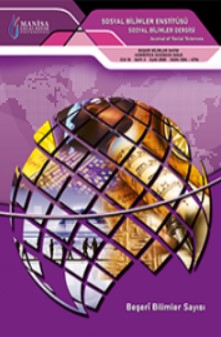Geleneksel Dünyada Bilgi, Eğitim ve Ulema’nın Toplumsal Konumu
Knowledge, Education and the Social Position of Ulema in Traditional World
Author(s): Aznavur DemirpolatSubject(s): Islam studies, School education, Higher Education , Sociology of Religion
Published by: Celal Bayar Üniversitesi Sosyal Bilimler Enstitüsü
Keywords: Madrasas; Education; Ulema; Power;
Summary/Abstract: Islam as a scriptural religion has been very effective in the development of both knowledge and educational institutions in the Muslim world. However, in order to understand both the historical development of Islamic educational institutions (madrasas) and the role of the ulama within this development, it is necessary to examine the nature of the relationship between knowledge and power. Therefore, the main purpose of this study is to explain the historical and social-cultural dynamics that determine the relationship between knowledge and power in the Islamic world. The main thesis of this study is that the dynastic structures that emerged after the first spread of Islam tried to dominate both the area of religious knowledge and the position of ulema within the Muslim societies. Especially after the rise of the Abbasid dynasty, both madrasas and ulama, had become the object of the power. In the Ottoman Empire, the ulama were divided into two main groups such as central ulema and the provincial one. Compared to the Sunni world, during the post-Safavid era, Shiite ulama and their educational institutions have preserved their relative autonomy against the power. Therefore, in general, it can be said that in the traditional Islamic world, madrasas and the ulema class have become the main legitimating instrument of the political power, even the organ of it.
Journal: Celal Bayar Üniversitesi Sosyal Bilimler Dergisi
- Issue Year: 19/2021
- Issue No: Sp. Issue
- Page Range: 299-310
- Page Count: 12
- Language: Turkish

